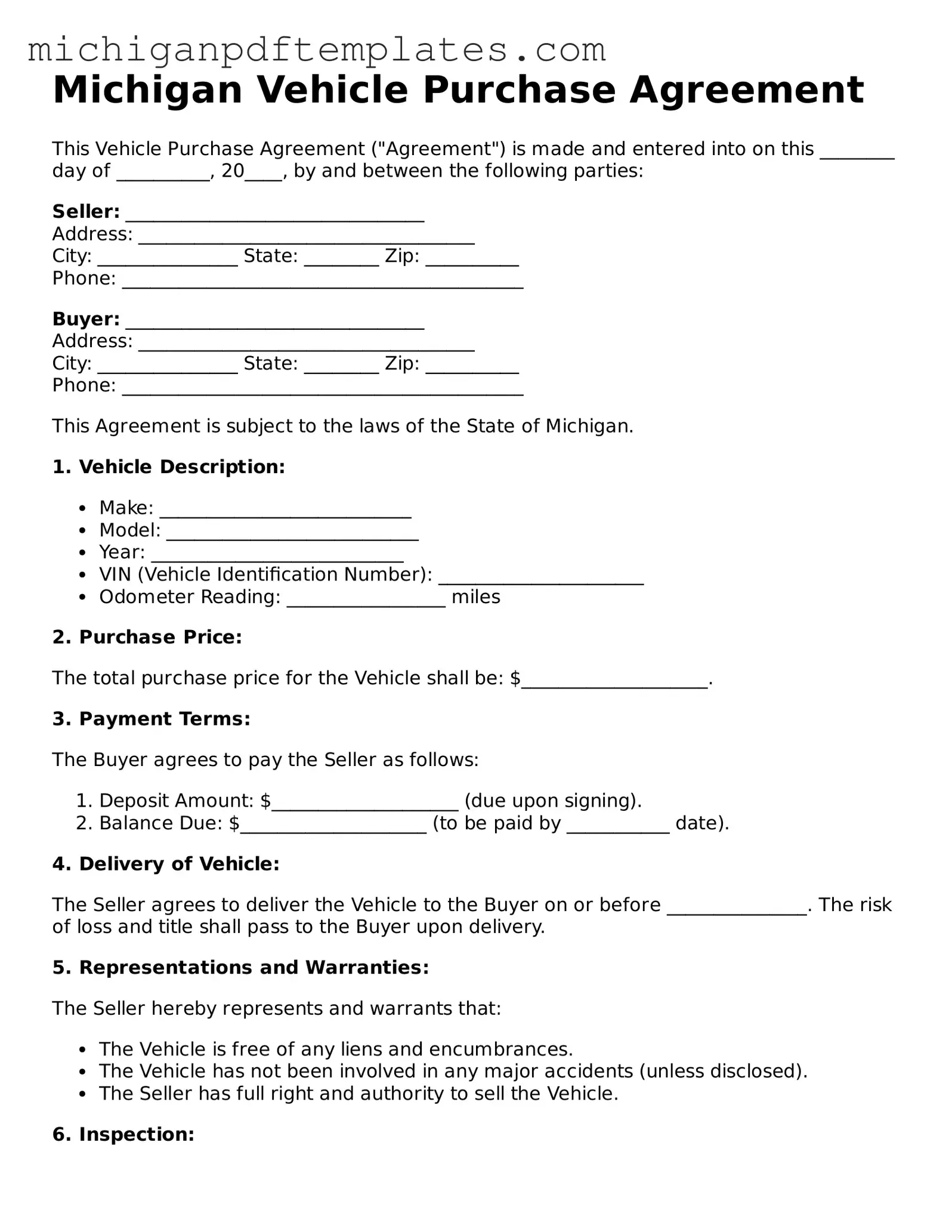Legal Michigan Vehicle Purchase Agreement Template
The Michigan Vehicle Purchase Agreement form is a crucial document that outlines the terms of a vehicle sale between a buyer and a seller. This agreement serves to protect both parties by clearly defining the responsibilities and expectations associated with the transaction. Understanding this form is essential for a smooth and legally sound purchase experience.
Ready to complete your vehicle purchase? Fill out the form by clicking the button below.
Get Your Form Now

Legal Michigan Vehicle Purchase Agreement Template
Get Your Form Now

Get Your Form Now
or
▼ PDF Form
Finish this form quickly and move on
Fill in and complete Vehicle Purchase Agreement online quickly.